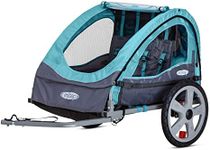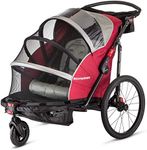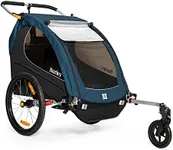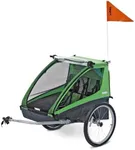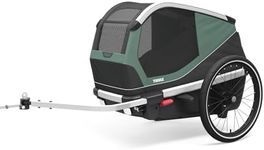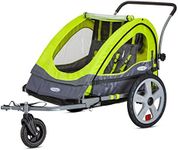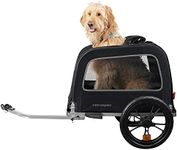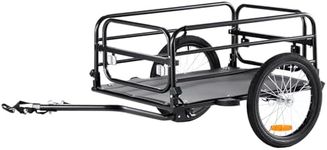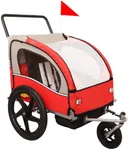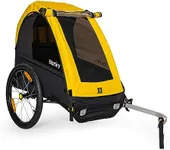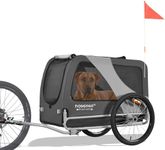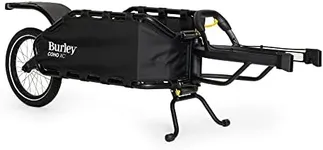Buying Guide for the Best Foldable Bike Trailer
Choosing the right foldable bike trailer can greatly enhance your biking experience, whether you're using it for transporting kids, pets, or cargo. The key is to understand the various specifications and how they align with your specific needs. By focusing on the right features, you can ensure that you get a trailer that is safe, durable, and convenient for your lifestyle.Weight CapacityWeight capacity refers to the maximum load the trailer can safely carry. This is crucial because overloading a trailer can lead to safety issues and damage. Trailers typically range from 50 to 100 pounds for child carriers and up to 150 pounds for cargo trailers. If you plan to carry children or heavy cargo, choose a trailer with a higher weight capacity to ensure safety and durability.
Foldability and StorageFoldability is the ease with which the trailer can be collapsed for storage or transport. This is important for those with limited storage space or who need to transport the trailer in a car. Trailers vary in how compactly they fold and how easy they are to fold. If you have limited space or need to frequently transport the trailer, look for one that folds down compactly and has a simple folding mechanism.
Hitch SystemThe hitch system is how the trailer attaches to your bike. A good hitch system ensures a secure and stable connection. There are different types of hitches, such as axle-mounted or seat post-mounted. If you plan to use the trailer with multiple bikes, look for a universal hitch system. For ease of use, choose a hitch that is easy to attach and detach.
Safety FeaturesSafety features include elements like harnesses, reflectors, and safety flags. These are crucial for ensuring the safety of passengers and visibility on the road. Trailers for children should have a secure harness system, while all trailers should have reflectors and a safety flag for visibility. If you are carrying children or using the trailer in low-light conditions, prioritize trailers with comprehensive safety features.
Wheel Size and TypeWheel size and type affect the trailer's stability and ease of towing. Larger wheels (16-20 inches) provide better stability and smoother rides, especially on rough terrain. Smaller wheels are more compact but may not handle bumps as well. If you plan to ride on varied terrain, opt for larger wheels. For city use or smooth paths, smaller wheels may suffice.
Interior Space and ComfortInterior space and comfort are important for the passengers or cargo. This includes the seating area for children or the cargo space for goods. Trailers with more interior space provide a more comfortable ride for children and more room for cargo. If you are carrying children, look for padded seats and ample legroom. For cargo, ensure there is enough space for your typical load.
Weather ProtectionWeather protection includes features like rain covers, sunshades, and ventilation. These are important for protecting passengers or cargo from the elements. Trailers with good weather protection keep passengers dry and comfortable in various weather conditions. If you plan to use the trailer in all weather conditions, look for one with comprehensive weather protection features.
